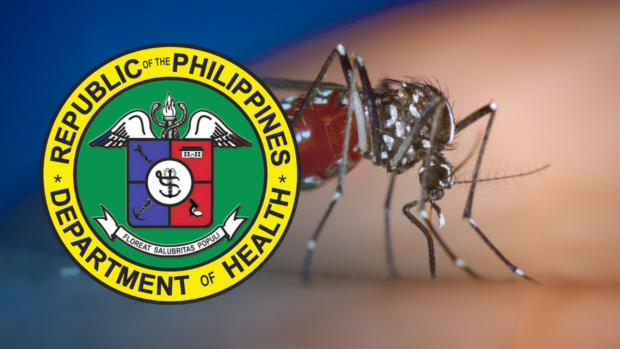Dengue cases in Ilocos region drop, but DOH warns vs ‘complacency’
LAOAG CITY, Ilocos Norte—The regional Department of Health reiterated that residents in the Ilocos region should not be “complacent” and observe strictly health protocols despite a “low” number of dengue cases so far this year.
At a dengue awareness forum on Tuesday, June 14, Lariella Joy Daquiaoag, DOH environmental and occupational health engineer, said dengue cases were lower in the region from Jan. 1 to the first half of June, noting an 81-percent drop compared with the same period last year.
So far, the region had recorded at least 619 cases, of which 323 cases were traced to Pangasinan province, 114 in Ilocos Sur, 97 in Ilocos Norte, 63 in La Union, and 22 in Dagupan City, said Daquiaoag, citing data from the DOH regional epidemiology and surveillance unit.
In 2021, the region reported around 3,065 cases from January to May of last year.
Dengue is a viral infection that humans get through the bite of an infected Aedes aegypti mosquito.
She said despite the decreasing number of cases, the mortality rate was growing.
However, Daquiaoag raised the alarm over the rising number of dengue cases in Ilocos Norte, with the data showing that the province had only 42 patients last year compared with 97 in the first five months of 2022.
She reminded the public to observe strictly health protocols to prevent an outbreak.
Daquiaoag said the public should follow the enhanced 4-S strategy, referring to the searching and destroying of mosquito breeding places, self-protection, seeking early consultation, and supporting fogging if there is a clustering of cases in four consecutive weeks.
Daquiaoag also emphasized the importance of consulting a doctor two days after experiencing symptoms, including fever, so as not to aggravate the condition.
She reiterated that the public should refrain from storing stagnant water in containers, including natural ones, as these become breeding grounds for dengue-carrying mosquitoes.
The virus could spread all-year round, contrary to the common misconception that dengue hits only during the rainy season, according to Daquiaog.
